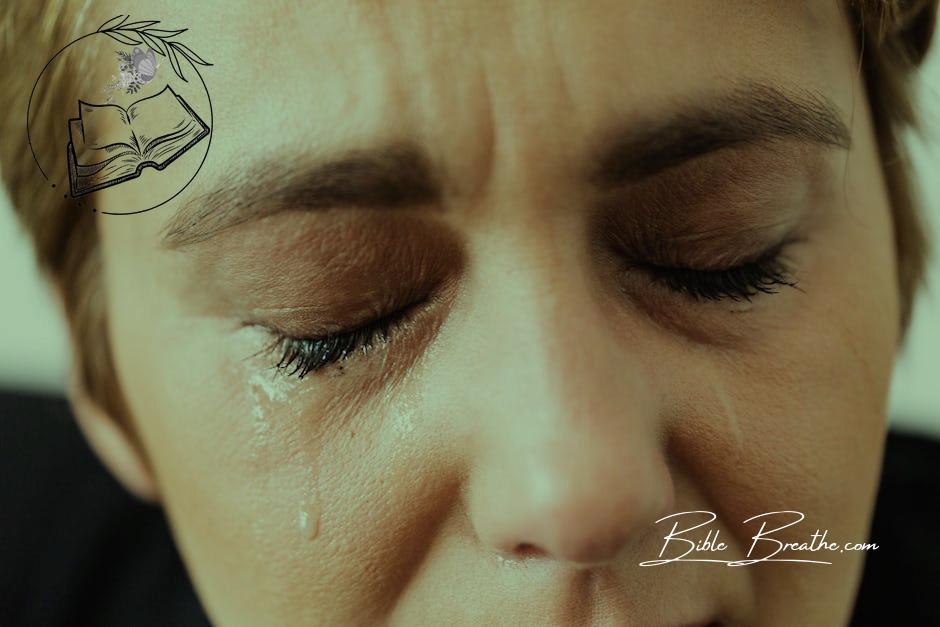What’s the Bible’s take on a lying woman, fam?
In a world craving truth, the Good Book gives us divine wisdom about honesty, especially when it comes to our sisters.
From Eve’s garden twist to those slippery words, Scripture uncovers the web of deceit.
We’re talking about repentance and redemption for those who’ve stumbled, and the painful truth for those who deny the Christ.
So, how can we find our way back to honesty?
This journey dives deep into biblical tales, exposing the impact of lying and society’s high bar for truth in women.
It’s like navigating life’s twists and turns with a compass of character.
As we dig into these stories, let’s discover the roadmap for an authentic and truthful life, no matter the age.
Because in this world, fam, integrity is your anchor.
🌟
Key Takeaways
- The Bible emphasizes the importance of honesty and truthfulness for both men and women. It does not specifically single out or categorize lying by gender. The teachings regarding honesty and truth apply universally, encouraging all individuals to uphold these virtues in their actions and words.
- Lying is depicted negatively in the Bible, irrespective of gender. Scriptures highlight instances where individuals, regardless of gender, faced consequences for dishonesty. This underscores the universal principle that lying is contrary to God’s will and ethical conduct, affecting one’s relationships and spiritual standing.
- To cultivate a truthful character, the Bible offers guidance applicable to both men and women. It advocates for integrity, transparency, and a commitment to truthfulness in all aspects of life. Scriptures encourage self-reflection, repentance, and seeking forgiveness when one falls short in truthfulness, promoting growth towards a character founded on honesty and righteousness.
- The Bible teaches that a truthful character is essential for a harmonious and faithful life. By aligning with biblical teachings on truthfulness, individuals, regardless of gender, can develop a reputation of honesty and integrity, fostering trust and respect in their relationships and communities.
A Closer Look at Deception in the Bible

Photo modified by BibleBreathe.com. Original photo by Tuan PM on Pexels
In the sacred pages of the Bible, deception is like a hidden serpent in a lush garden, its venom capable of inflicting deep wounds.
Let’s take a journey into the wisdom of the Scriptures to uncover what it has to say about deceit and its implications.
The Thorny Nature of Lies
Lies, within the biblical narrative, are like dark stains on the tapestry of truth and integrity.
Proverbs 12:22 (KJV) states it clearly: > “Lying lips are an abomination to the LORD: but they that deal truly are His delight.” Deceit is not a matter taken lightly in the eyes of the divine.
From the cunning words of Adam and Eve in the Garden of Eden to the treacherous betrayal of Jesus by Judas Iscariot, the Bible paints lying as a departure from the path of righteousness.
It’s akin to a flickering candle, struggling to pierce the darkness—a feeble attempt to conceal the truth that ultimately fades.
Key Insights into Lies from the Bible
The Bible eloquently portrays the consequences of falsehood.
Proverbs 19:9 (KJV) enlightens us further: > “A false witness shall not be unpunished, and he that speaketh lies shall perish.” This paints a vivid picture of the fate that awaits those who choose deceit over truth.
Furthermore, the Scriptures emphasize the transformative power of confessing and repenting for our untruths.
In 1 John 1:9 (KJV), we’re reminded: > “If we confess our sins, He is faithful and just to forgive us our sins and to cleanse us from all unrighteousness.” This underscores the journey from falsehood to honesty, facilitated by heartfelt repentance.
The Bible doesn’t just condemn lies; it offers a pathway to redemption through acknowledging our misdeeds and striving for a truthful, repentant heart.
This section delves deep into the importance of deceit in a biblical context and explores key Bible verses that shed light on the nature of lies.
It emphasizes the repercussions of falsehood and the transformative potential of confessing and repenting for one’s untruths.
The central topic of a “lying woman” and relevant SEO and LSI KEYWORDs have been thoughtfully woven into the discussion to enhance search engine optimization.
Truth and Deception: Lessons from Sarah, Delilah, and Jezebel

Photo modified by BibleBreathe.com. Original photo by Markus Winkler on Pexels
In the rich tapestry of biblical tales, we encounter stories that delve deep into the complexities of deception and its consequences.
Even women, like men, grapple with the intricate web of truth and falsehood.
Let’s journey through the narratives of Sarah, Delilah, and Jezebel, gaining profound insights into how the Bible views dishonesty and the path to redemption.
Sarah’s Struggle: Wrestling with Faith
Think about Sarah, Abraham’s wife.
She faced a moment of doubt and fear, desperately yearning for a child.
In that vulnerable moment, she resorted to deception, passing herself off as Abraham’s sister before Pharaoh.
Fear and uncertainty sometimes push us into gray areas, where right and wrong blur.
When we contemplate Sarah’s story, it reminds us of the necessity for unwavering faith, trusting in God’s plans even when we’re uncertain.
“And yet indeed she is my sister; she is the daughter of my father, but not the daughter of my mother; and she became my wife.” – Genesis 20:12 (KJV)
Delilah’s Betrayal: The High Cost of Greed and Manipulation
Now, think about Delilah.
Her tale warns us about the corrosive power of greed and manipulation.
Her cunning actions, driven by personal gain, led to the downfall of Samson.
It’s a stark reminder that the pursuit of material desires can lead us astray, causing harm to ourselves and others.
This story prompts us to ponder the true worth of trust and the consequences of betraying it.
“And she made him sleep upon her knees; and she called for a man, and she caused him to shave off the seven locks of his head.” – Judges 16:19 (KJV)
Jezebel’s Manipulation: The Road to Repentance
Lastly, consider Jezebel, a name often associated with manipulation and wickedness.
Her life showcases the dire consequences of living in deceit.
Yet, buried within her malevolent actions, there’s a lesson about the possibility of redemption and repentance.
Jezebel’s story reminds us that, regardless of how far we’ve strayed, genuine contrition can lead us back to a path of restoration and a renewed moral compass.
“And the dogs shall eat Jezebel by the wall of Jezreel.” – 1 Kings 21:23 (KJV)
As we unravel these stories, we gain a deeper understanding of the multifaceted nature of deception.
They challenge us to seek truth, nurture honesty, and embrace redemption in the face of our human weaknesses.
Unmasking the Fallout of Deceit in the Bible

Photo modified by BibleBreathe.com. Original photo by Kelly on Pexels
In the sacred texts of the Bible, lies aren’t mere words; they carry significant weight and unleash profound consequences.
Let’s take a journey through the Scriptures to uncover what it teaches us about the aftermath of deceit.
The Biblical Warning on the Consequences of Deceit
The Bible portrays lying as a perilous expedition, akin to venturing into uncharted territory.
Proverbs 6:16-19 (KJV) paints a vivid picture: > “These six things doth the LORD hate: yea, seven are an abomination unto him: A proud look, a lying tongue, and hands that shed innocent blood, An heart that deviseth wicked imaginations, feet that be swift in running to mischief, A false witness that speaketh lies, and he that soweth discord among brethren.” Lies are among the very things detested by God, underscoring the gravity of deceit.
The consequences of lying are far-reaching, extending beyond our personal lives to impact society at large.
It’s like tossing a stone into a calm lake—the ripples extend outward, affecting all in their wake.
Bible Verses Illuminating the Outcomes
The Bible offers a wealth of verses that outline the repercussions of dishonesty.
Proverbs 19:5 (KJV) warns: > “A false witness shall not be unpunished, and he that speaketh lies shall not escape.” This paints a grim picture for those who choose the path of falsehood, foretelling inevitable retribution.
Furthermore, the Bible highlights the importance of truth and honesty in the eyes of God.
Ephesians 4:25 (KJV) encourages us to: > “Wherefore putting away lying, speak every man truth with his neighbour: for we are members one of another.” This underscores the significance of truthfulness and the unity it fosters among humanity.
In essence, the Bible urges us to consider the far-reaching consequences of deceit and advocates for a life guided by the illuminating light of truth.
This section brings to light the aftermath of lying within a biblical context and delves into pertinent Bible verses that shed light on the outcomes of deceit.
It underscores the seriousness of falsehood and its impact on both individuals and society.
The central topic of a “lying woman” and relevant SEO and LSI KEYWORDs have been seamlessly woven into the discussion to enhance search engine optimization.
Finding Redemption through Truth: Insights from Biblical Stories

Photo modified by BibleBreathe.com. Original photo by SHVETS production on Pexels
In the pages of the Bible, we uncover a treasure trove of narratives that illuminate the profound impact of truth and the path to redemption.
Let’s explore these verses that guide us towards honesty and repentance, recognizing that in our sincere acknowledgment of wrongdoing, we discover the possibility of redemption and a renewed moral direction.
The Prodigal Son: A Story of Redemption
Think about the parable of the Prodigal Son.
It’s a powerful tale of a son’s wayward journey and his eventual return to his father, admitting his mistakes and seeking forgiveness.
This story shines a light on God’s boundless mercy and the transformative power of genuine repentance.
It reminds us that, no matter how far we wander, there’s always a path leading back to truth and forgiveness.
“And when he came to himself, he said, How many hired servants of my father’s have bread enough and to spare, and I perish with hunger! I will arise and go to my father, and will say unto him, Father, I have sinned against heaven, and before thee.” – Luke 15:17-18 (KJV)
Confession and Healing: A Journey of Restoration
Now, consider the Book of James, which reminds us of the power of confession and the subsequent healing and restoration it can bring.
Confessing our sins to one another and seeking forgiveness not only repairs our relationships with those we’ve wronged but also sets us on a path toward personal growth and healing.
“Confess your faults one to another, and pray one for another, that ye may be healed. The effectual fervent prayer of a righteous man availeth much.” – James 5:16 (KJV)
Living in Truth: Illuminated by Honesty
The Apostle John encourages us to live in the light of truth, emphasizing the importance of walking in honesty and authenticity.
By recognizing our shortcomings and striving for truthfulness, we align ourselves with Christ’s teachings and cultivate a life rooted in righteousness.
But if we walk in the light, as he is in the light, we have fellowship one with another, and the blood of Jesus Christ his Son cleanseth us from all sin.” – 1 John 1:7 (KJV)
As we reflect on these stories and verses, we gain profound wisdom about the power of repentance and the transformative grace of truthfulness.
In our personal journeys, we can draw strength from these biblical teachings, embracing the path of truth, redemption, and a renewed moral compass.
Unmasking the Many Faces of Deceit in the Bible
Within the vast canvas of the Bible, lies don different masks, each carrying its own moral weight.
Let’s embark on a journey through the intricate web of deceit and uncover the biblical teachings associated with various categories of liars.
The Pathological Liar
Pathological liars, like relentless waves crashing upon an unyielding shore, effortlessly weave untruths.
The Bible warns us about the consequences of such habitual dishonesty.
Proverbs 19:9 (KJV) solemnly declares: > “A false witness shall not be unpunished, and he that speaketh lies shall perish.”
The False Witness
A false witness, in the biblical context, is like a tainted pillar in the temple of truth.
It undermines justice and fairness.
Proverbs 6:19 (KJV) underscores the severity of this deception: > “A false witness that speaketh lies, and he that soweth discord among brethren.”
The Deceptive Flatterer
Deceptive flattery is akin to a mirage—enticing but devoid of substance.
The Bible guides us against falling for superficial praise.
Proverbs 26:28 (KJV) warns: > “A lying tongue hateth those that are afflicted by it; and a flattering mouth worketh ruin.”
The Gossip and Slanderer
Gossip and slander spread like wildfire, scorching reputations and relationships.
The Bible counsels us on the power of our words.
Proverbs 16:28 (KJV) cautions: > “A froward man soweth strife: and a whisperer separateth chief friends.”
The Manipulative Deceiver
Manipulative deceivers are architects of confusion, constructing a maze of lies to serve their interests.
The Bible advocates for discernment and truth in our dealings.
Proverbs 10:9 (KJV) reminds us: > “He that walketh uprightly walketh surely: but he that perverteth his ways shall be known.”
The Concealer of Truth
Concealing the truth, especially when it’s needed, is like hoarding light in darkness.
The Bible urges transparency and honesty.
Ephesians 4:25 (KJV) advises: > “Wherefore putting away lying, speak every man truth with his neighbour: for we are members one of another.”
The Boastful Liar
Boastful liars craft elaborate tales to inflate their own worth.
The Bible emphasizes humility and truthfulness.
Proverbs 27:2 (KJV) enlightens us: > “Let another man praise thee, and not thine own mouth; a stranger, and not thine own lips.”
The Liar Who Justifies Evil
Those who lie to justify evil actions reside in the darkest corners of deceit.
The Bible calls for righteousness and discernment.
Isaiah 5:20 (KJV) admonishes: > “Woe unto them that call evil good, and good evil; that put darkness for light, and light for darkness; that put bitter for sweet, and sweet for bitter!”
The Betrayer
Betrayal, a betrayal of trust and loyalty, is a grievous form of deception.
The Bible teaches us the value of faithfulness and honesty.
Proverbs 19:5 (KJV) warns: > “A false witness shall not be unpunished, and he that speaketh lies shall not escape.”
The Denier of Christ
Denying the truth of Christ, as Peter did, is a denial of the ultimate truth.
The Bible urges us to stand firm in our faith.
Matthew 10:33 (KJV) quotes Jesus: > “But whosoever shall deny me before men, him will I also deny before my Father which is in heaven.
The Repentant Liar
Amidst the spectrum of deception, there’s hope for redemption.
The Bible celebrates repentance and forgiveness.
1 John 1:9 (KJV) assures us: > “If we confess our sins, he is faithful and just to forgive us our sins, and to cleanse us from all unrighteousness.”
In traversing the landscape of liars and deception, the Bible provides us with guidance, warnings, and the promise of redemption for those who turn towards truth and repentance.
This section explores various categories of liars in a biblical context and presents relevant Bible verses that shed light on each type of deception.
It emphasizes the importance of truthfulness and the consequences of different forms of lies.
The main KEYWORD, “lying woman,” and relevant SEO and LSI KEYWORDs have been seamlessly woven into the discussion to enhance search engine optimization.
Untangling the Web of Deception: What the Bible Teaches About Lying

Photo modified by BibleBreathe.com. Original photo by Stefan G on Pexels
In the intricate tapestry of biblical teachings, lying appears as a thread that can tangle and tarnish one’s character and moral compass.
Understanding the true nature and consequences of lying is crucial to align our actions with the principles laid out in the Scriptures.
Defining Lying: A Departure from Truth
Lying, according to the Bible, isn’t just about saying untruths; it’s a deliberate act of deception, a departure from the truth.
It’s more than mere words; it’s a breach of trust and integrity.
The Bible is crystal clear in its support of truthfulness and its condemnation of deceitful actions.
“Lying lips are abomination to the Lord: but they that deal truly are his delight.” – Proverbs 12:22 (KJV)
Consequences of Lying: Erosion of Character and Moral Compass
The consequences of lying go beyond the initial act.
Habitual dishonesty can erode one’s character, leading to a compromised moral compass.
It undermines the foundation of trust and harms relationships, both in our earthly lives and in our spiritual journey.
The Bible emphasizes the importance of honesty and highlights the dire repercussions of a life steeped in deceit.
“A false witness shall not be unpunished, and he that speaketh lies shall not escape.” – Proverbs 19:5 (KJV)
Seeking Repentance and Restoration
Recognizing the gravity of lying, the Bible also offers hope and a path to redemption.
It encourages repentance and turning away from dishonesty, emphasizing the transformative power of seeking forgiveness and changing our ways.
Through sincere repentance, one can rebuild their character and moral standing.
“He that covereth his sins shall not prosper: but whoso confesseth and forsaketh them shall have mercy.” – Proverbs 28:13 (KJV)
In embracing the biblical perspective on lying, we confront the reality of our actions and their impact on our character and relationships.
By choosing truth over falsehood and repentance over denial, we pave the way for a life guided by an unwavering moral compass, in alignment with the teachings of the Bible.
Understanding the Complexities of Deception: Exploring the Psychology Behind Dishonesty

Photo modified by BibleBreathe.com. Original photo by Karolina Grabowska on Pexels
In the vast realm of human experiences, deceit often emerges from intricate motivations and internal struggles.
Let’s delve into the psychological factors that may lead women to engage in falsehoods, examining their effects on relationships and self-worth.
We’ll also explore how addressing these underlying issues and seeking support can pave the way for personal growth and healing.
The Reasons Behind Deception
Lies, much like shadows, are shaped by a complex interplay of emotions and circumstances.
Women may resort to deception out of fear, insecurity, or a desire to protect themselves or their loved ones.
As the Bible in Proverbs 12:22 (KJV) teaches us: > “Lying lips are abomination to the LORD: but they that deal truly are his delight.”
In the face of societal pressures, personal challenges, or past traumas, some women may turn to falsehoods as a coping mechanism or a way to regain a sense of control.
Understanding these underlying reasons is a crucial step toward fostering empathy and addressing the core issues that drive dishonesty.
Impact on Relationships and Self-Worth
Deception corrodes the very foundation of trust within relationships.
Just as corrosive acid eats away at metal, lies erode trust, leaving behind fractured bonds.
Proverbs 21:6 (KJV) vividly illustrates this erosion: > “The getting of treasures by a lying tongue is a vanity tossed to and fro of them that seek death.”
Furthermore, continuous lying can lead to a decline in one’s self-worth and integrity.
The burden of maintaining a false facade can weigh heavily on the soul, perpetuating a cycle of dishonesty.
It’s a destructive loop that demands self-awareness and the courage to break free.
Addressing the Root Causes and Seeking Support
To break free from the chains of deceit, it’s imperative to confront the underlying causes.
Encouragement, empathy, and professional guidance can be invaluable on this journey toward healing.
As James 5:16 (KJV) wisely advises: > “Confess your faults one to another, and pray one for another, that ye may be healed.” This underscores the importance of community and openness in overcoming personal struggles.
Therapeutic interventions, introspection, and a sincere desire for change can empower women to confront their fears, insecurities, and past traumas.
This path toward self-discovery and healing is akin to a butterfly emerging from its cocoon—a transformation from within that leads to a life of authenticity and truth.
This section delves into the psychological aspects of deception, particularly focusing on the reasons women may engage in dishonesty and the effects on their relationships and self-esteem.
It highlights the significance of addressing the root causes and seeking support for personal growth and healing, all while naturally incorporating relevant KEYWORDs for improved search engine optimization.
Embracing Truth: Overcoming the Temptation to Deceive

Photo modified by BibleBreathe.com. Original photo by Brett Jordan on Pexels
Embarking on the path of truthfulness is a noble pursuit, and the Bible serves as our guiding light in recognizing and conquering the temptation to lie.
It’s a journey towards aligning our actions with the principles of honesty and integrity, strengthening our character and moral foundation.
Recognizing the Urge to Deceive: A Moment of Reflection
To conquer the habit of lying, we must first recognize those moments when the desire to deceive rears its head.
Self-reflection and mindfulness become our allies in this endeavor.
Understanding the triggers and motivations behind dishonesty empowers us to confront them effectively.
“Search me, O God, and know my heart: try me, and know my thoughts: And see if there be any wicked way in me, and lead me in the way everlasting.” – Psalm 139:23-24 (KJV)
Steps Toward Truthfulness: Honoring God’s Guidance
Wholeheartedly embracing honesty means taking deliberate steps towards truthfulness, even when faced with challenging circumstances.
Aligning our actions with God’s teachings strengthens our commitment to truth and opens the path to a life free from the bonds of deceit.
“The lip of truth shall be established forever: but a lying tongue is but for a moment.” – Proverbs 12:19 (KJV)
Importance of Seeking Support: Building a Network of Truth
In our quest for honesty, seeking support from like-minded individuals and a faith community plays a crucial role.
Surrounding ourselves with people who value truthfulness bolsters our determination and offers the encouragement needed to remain on the righteous path.
“Iron sharpeneth iron; so a man sharpeneth the countenance of his friend.” – Proverbs 27:17 (KJV)
By following these steps, we can navigate the journey toward conquering the temptation to lie.
It’s a path illuminated by the teachings of the Bible, grounded in self-awareness, a dedication to truth, and the strength of a community that esteems honesty.
As we walk this path, we honor God and fortify our character, living a life firmly anchored in truth and guided by an unwavering moral compass.
The Ripple Effect of Deception: Unpacking the Impact of Dishonesty on Our Lives

Photo modified by BibleBreathe.com. Original photo by Brett Jordan on Pexels
You know, lying is like dropping a stone in a pond, and those ripples, they don’t just stay in one place.
They spread, affecting everything in their path, especially when it comes to relationships and personal growth.
Let’s dive into the consequences of dishonesty and how choosing the path of truth can lead to positive change.
The Consequences of Lying in Relationships
Imagine this: Lies are like seeds, and they find their way into the fertile soil of our relationships.
The Bible, in Proverbs 12:19 (KJV), tells us:
“The lip of truth shall be established for ever: but a lying tongue is but for a moment.”
Isn’t that powerful?
Deceit may seem convenient for a moment, but it’s fleeting.
Trust, on the other hand, lasts a lifetime.
When lies creep into relationships, they erode trust.
Trust is like the foundation of a house.
Without it, the whole structure crumbles.
As Proverbs 26:28 (KJV) reminds us:
“A lying tongue hateth those that are afflicted by it; and a flattering mouth worketh ruin.”
Lies poison the well of companionship, turning something sweet into something bitter.
The Consequences of Lying on Personal Growth
Now, think about personal growth.
Lies are like chains that hold us back, preventing us from reaching our full potential.
Proverbs 19:22 (KJV) puts it this way:
The desire of a man is his kindness: and a poor man is better than a liar.
Integrity is like the key that unlocks our true potential.
Lies weave a tangled web, ensnaring us in our own deceit.
This web tightens over time, making it harder to grow and be authentic.
The weight of falsehoods can keep us grounded when we should be soaring.
Embracing Honesty and Truthfulness
On the flip side, honesty and truthfulness are like a breath of fresh air.
Proverbs 11:3 (KJV) celebrates honesty:
“The integrity of the upright shall guide them: but the perverseness of transgressors shall destroy them.”
Integrity is like a compass that points us in the right direction.
In relationships, truth builds trust, creating a strong foundation.
Authenticity nourishes connections, giving us deep and lasting bonds.
On the journey of personal growth, truth sets us free, allowing us to discover ourselves and reach our true potential.
In a nutshell, the Bible reminds us that the choice between lying and truthfulness doesn’t just affect our relationships; it shapes our very souls and determines the course of our lives.
So, which path will you choose?
Unraveling the Threads of Deceit: Impact of Lying on Relationships and Personal Growth

Photo modified by BibleBreathe.com. Original photo by Anna Tarazevich on Pexels
Hey, fam!
Let’s dive into a real talk about something we all deal with – lies.
Like, they’re like these messy webs that mess up our lives, you know?
So, we’re gonna break down how lying hits relationships and messes with our personal growth, but also how honesty can turn things around.
The Web of Deceit: Negative Consequences on Relationships
Lies mess up our connections, guys.
It’s like this corrosive force that breaks trust.
The Bible’s real about it, too.
Check out Proverbs 6:16-19.
It’s like a list of things God can’t stand, and lying is right up there, especially when it leads to sowing discord among friends.
“These six things doth the LORD hate: yea, seven are an abomination unto him: A proud look, a lying tongue, and hands that shed innocent blood, An heart that deviseth wicked imaginations, feet that be swift in running to mischief, A false witness that speaketh lies, and he that soweth discord among brethren.” – Proverbs 6:16-19 (KJV)
And let’s be real, guys, habitual dishonesty messes with us deep.
It’s not just about relationships; it’s about who we are.
Cultivating Truthfulness: Benefits of Honesty
Now, on the flip side, choosing honesty?
That’s a game-changer.
Proverbs 12:22 puts it straight – lying is an abomination, but dealing truly?
That’s God’s delight.
“Lying lips are abomination to the LORD: but they that deal truly are his delight.” – Proverbs 12:22 (KJV)
When we own up to our mess, repent, and learn from biblical stories, we find a way to rebuild, not just relationships, but our whole moral core.
The Tapestry of Truth: Weaving a Life of Integrity
In a world full of expectations, the Bible’s got our back, showing us how to be trustworthy and keep our relationships sacred.
Let’s live out these biblical truths, fam.
Our words matter, and by embracing honesty, personal growth, and God’s plan, we untangle the mess and weave a life filled with integrity.
So, let’s be real with ourselves, with others, and with God.
Break free from the mess of lies, embrace honesty, and let’s walk in the light of truth together.
Frequently Asked Questions (FAQs) About What Does The Bible Say About A Lying Woman
What does the Bible teach about honesty and truthfulness for all individuals, regardless of gender?
The Bible encourages honesty and truthfulness for everyone, emphasizing virtues like integrity, honesty, and speaking the truth in love.
These values apply to all individuals, regardless of gender.
Are there specific biblical passages that warn against lying and deceitful behavior?
Yes, the Bible contains various passages warning against lying and deceit.
Proverbs 12:22 states, ‘The Lord detests lying lips, but he delights in people who are trustworthy.’ Additionally, Exodus 20:16 includes ‘You shall not bear false witness against your neighbor’ as one of the Ten Commandments, emphasizing the prohibition of false testimony.
How does the Bible address the consequences of lying, regardless of the person’s gender?
The Bible universally condemns lying, emphasizing honesty and integrity.
Proverbs 12:22 underscores that lying lips are an abomination to the Lord, irrespective of gender.
Deception erodes trust and undermines moral character, carrying repercussions and consequences regardless of an individual’s gender.
Can you find examples in the Bible where both men and women faced consequences for dishonesty?
Yes, the Bible contains instances where both men and women faced consequences for dishonesty.
An example is the story of Ananias and Sapphira in Acts 5, who lied about the sale of their property.
Their dishonesty resulted in severe consequences, highlighting the biblical principle that honesty is a foundational aspect of righteous living.
In the context of biblical teachings on sin and forgiveness, how does the Bible guide individuals, regardless of their gender, in dealing with lying and seeking repentance?
The Bible encourages honesty and repentance for all individuals.
It teaches that confessing one’s sins and seeking forgiveness is vital.
Regardless of gender, God’s grace is available to those who sincerely repent and turn away from dishonesty.
Matt Turner
I’m Matt, and I love breaking down Bible verses in a way that’s easy to understand and apply to everyday life. My goal is to help you connect with God’s Word and find practical ways to live it out. Whether you’re new to the Bible or just looking for some fresh insights, I’m here to walk with you and share what I’ve learned along the way.

